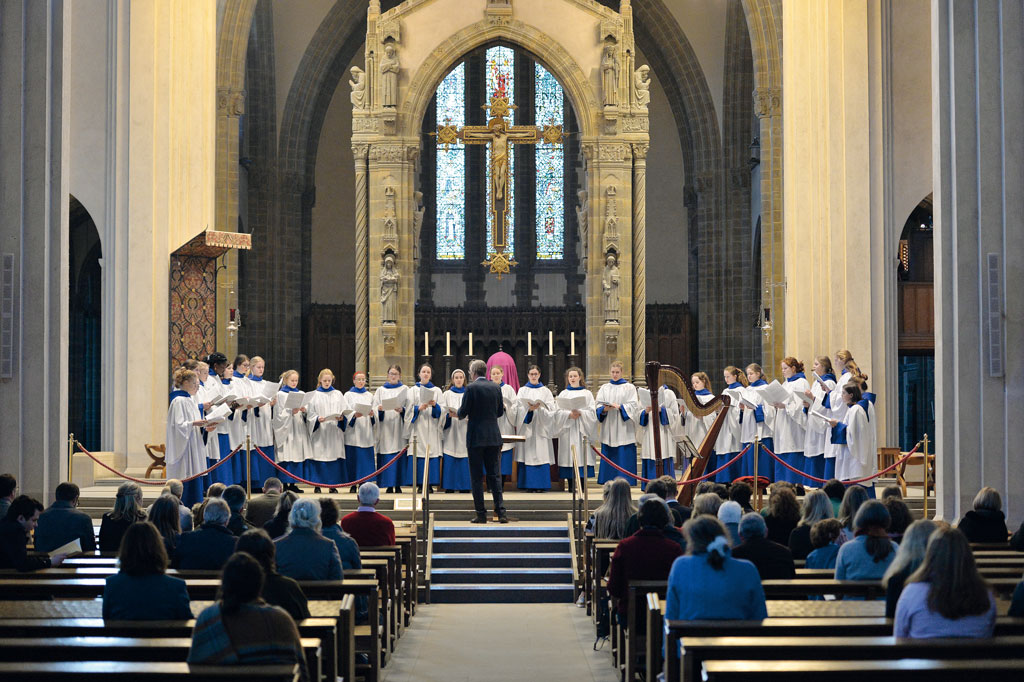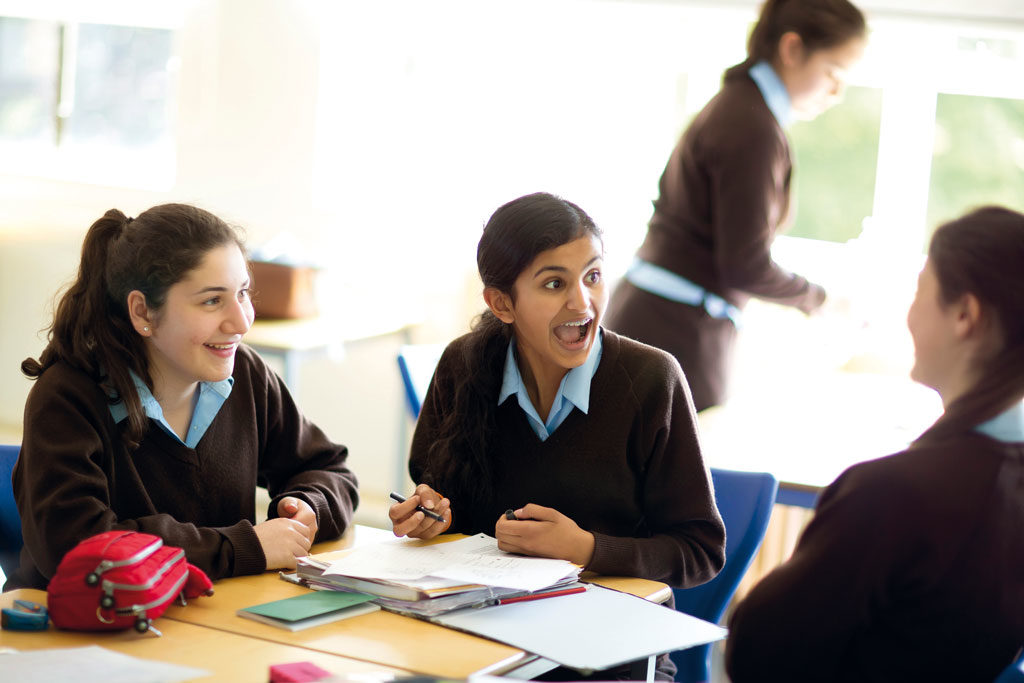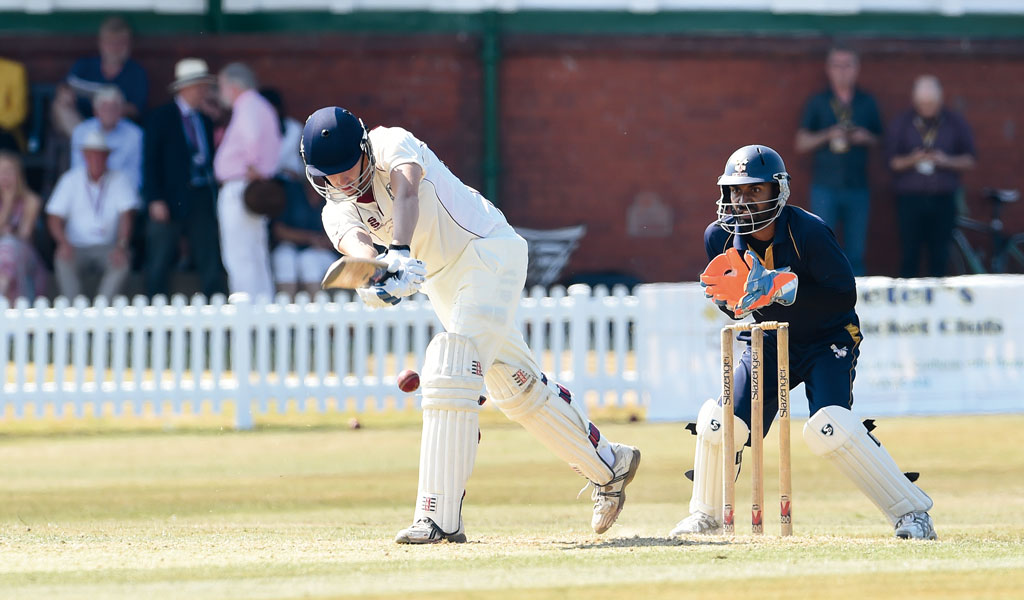Religious Education In Schools Gains Popularity
By
7 years ago
Contrary to recent headlines, a new 'class of tolerance' is emerging

Cristina Odone considers the reasons for the rising popularity of religious education among independent school pupils.
Civil war in Syria. Violence in Gaza. And, closer to home, accusations of anti-Semitism against Jeremy Corbyn’s Labour Party, and of Catholic bigotry against Jacob Rees-Mogg. Religion is at the heart of current affairs, inspiring hatred and factionalism in some areas and loving compassion in others.
Ironically, just as world events are shaped by religious fervour and require an understanding of the major faiths, Britain has grown increasingly religiously illiterate. Few have been able spot the falsehoods in Islamists’ fanatical messages or predict the importance of Israel for the Christian Evangelical supporters of Donald Trump.
Few seem to worry about our collective ignorance: one in four secondary schools in England are breaking the law by not teaching religious education – and a recent survey of more than 2,000 Britons revealed that nearly three-fifths think Religious Education should be replaced by Politics at secondary school.
Christianity Remains Key
Some of our foremost educators disagree. The Rev Mark Jones has been teaching Divinity at Eton College for 29 years. Britain now may be only nominally a Christian country, but he tells pupils at Britain’s most famous school that the ‘rich tapestry of Christianity remains very much part of public life, as witnessed most recently in the Meghan-Harry wedding’.
Christian iconography and institutions surround the students, and unless they are familiar with this landscape marked by charities and martyrs, oaths and missionaries, their progress through it will be slow and uncertain.
Multiculturalism is Indispensable
Indeed, in multi-faith, multi-cultural Britain, as the Rev Jones points out, pupils need to know more than their Christian legacy; they must have a grasp of the major world religions. Rev Jones says Eton has been teaching the world religions since the 1960s. ‘All pupils take a foundation course, when they have two lessons a week in Divinity, which introduces them to thinking systematically about ethics and the principal concepts and practices of the major world faiths.’
John Browne, Headmaster at Stonyhurst, the oldest Jesuit school in the world (425 next year), likes to remind his students of the Jesuits’ motto, ‘the world is our house’:
‘We want our students to be familiar with all the great religions: only through knowledge can we reveal the links and synergies between the faiths. And that is what breeds tolerance.’
Few independent schools can boast the diversity found at North London Collegiate School, one of the country’s top ranking girls’ schools. The 1,066 students come from many different ethnic and religious backgrounds: James Holt, the school’s head of Religious Studies and Philosophy, describes how ‘in any given class we will have Judaism, Sikhism, Jainism, Hinduism, Islam and Christianity represented’.
The focus is ‘highly academic rather than confessional and we examine the ways in which the different faiths tackle the same philosophical questions about the meaning and purpose of life, morality, the nature of God, the possibility of an afterlife, the relationship between the body and the soul and so on.’
As a result of classroom discussions, he explains, ‘Jewish and Muslim pupils are fascinated to learn about the close similarities between their religions, both stemming from Abraham and the same impulse to believe in monotheism.’

Ampleforth College is one of the foremost Catholic boarding schools
Is Religion Ever Irrelevant?
Five to 15 year olds are now spending more than 15 hours a day online, and smart phones allow 24/7 access to virtual entertainments from Facebook to gaming. This means the values of ancient civilisations must seem as dated as a telex machine. How do top schools make religious studies relevant?
The answer is by discussing dilemmas that strike a chord of recognition among youngsters, rather than by spending lessons memorising the Catechism, or verses from the Bible, as many parents will have experienced in their own religious studies.
The 569 students of Ampleforth College, the famous Catholic independent school based in Yorkshire, sit through classes entitled ‘Prejudice regarding other people and communities’, ‘Personal Identity (Who Am I?)’ and ‘Addiction’; while at Eton, the Rev Jones believes in ‘raising a range of ethical dilemmas, that teens are really interested in – from sexual mores to charitable giving’. Indeed, at Eton, theology is as popular at A-level as history and geography.
James Holt encourages his students at North London Collegiate School to share their personal experiences:
‘School children are wonderfully open and honest about their beliefs (far more so than adults!) and willing to share them in the class… The key to this is to create a classroom atmosphere where pupils don’t feel personally judged or awkward about evaluating and analysing religious beliefs. Adults are warned against discussing religion at dinner parties, but children and teenagers are naturally questioning and philosophical.’

Teachers at North London Collegiate School encourage pupils to share their personal experiences
Alfred Nicol, who teaches religious studies at Benenden School in Kent, likes to warn traditionalist parents that
they will find, in their daughters’ RS lessons, little to remind them of their own studies. Gone are the proselytising and the indoctrination.
‘Gone too, are the days, thank goodness, when RS played the backseat in the curriculum, being delivered by a well-meaning woolly haired chaplain who smelt faintly of sherry.’
Modern Curriculums Are Making Gains
Today, instead, RS is one of the most popular options in the school, according to Mr Nicol, because, ‘in essence we teach about people rather than God.’
People’s choices – how to lead their lives, whom to associate with, what to say – are determined by their values. Discipline, generosity, charity – the values that build character have become fashionable once again in education. The same parent who might balk at the thought of Junior sitting through a proselytising sermon in Chapel will heartily approve of his son being taught the Judaeo-Christian values of self-restraint and how to share with peers.
‘I want our students to learn about religion but also from religion,’ explains the Rev Mark Jones.
‘They learn facts but they also engage inwardly, learning about love, honour, humility.’
‘Character formation is now core to many schools’ curricula, but Catholic schools have been doing this for years,’ says John Browne, headmaster at Stonyhurst. Parents, he says, increasingly ask schools about their ‘ethos’ and their ‘values system’ in the way that, until recently, they would have asked about exam results and league tables.
Nicol points out that one big difference between religious studies as they were taught 20 or 30 years ago and today lies in debate: students are encouraged to question and discuss, rather than take as gospel truth, the tenets of any one faith. ‘I’m delighted that religious studies provides opportunities for pupils to think, argue and evaluate abstract ideas at a very high level. In doing so we more than justify our confidence in the subject’s value contributing to the girls’ ability to engage with
all of their chosen disciplines.’
Religious Studies and Mental Health
There is another aspect of religious studies that contributes to its popularity with stressed-out pupils (and their worried parents). Students who study the world’s faiths will be exploring spirituality – whether in terms of Buddhist meditation or Judaeo-Christian contemplation. At a time when more of us are sensitive to the importance of wellbeing, a subject that helps young people venture beyond the purely material provides a valuable means of supporting mental health.
All of the Ampleforth College houses have their own dedicated chapel, where students ‘have space for prayer and reflection’. This, says Deirdre Rowe, the deputy head, is crucial to student life:
‘We feel that it is important that students feel free to explore their spiritual side when they are at school and do not feel the need to apologise for believing in God in an increasingly secular age.’
For John Browne, at Stonyhurst, reflection and meditation are part of a religious education – but he encourages his students to ‘do’ good as well.
‘Jesuit education is about action-focused religion: it asks of our students what are you going to do about it? This energises them.’
The school has a registered charity, Children for Children, which is now 14 years old and run by the students. In the autumn Stonyhurst are hoping to welcome a Syrian refugee family: ‘It took a lot of careful scrutiny, planning, and a 60-page Home Office form, but the students were determined to make a difference,’ Browne explains.

The cricket match at Stonyhurst College was the first fixture if the Vatican XI’s 4th Light of Faith Tour of England, 2018
A New Class of Tolerance
From bridging the Jewish-Muslim divide to supporting refugees, religious studies are inspiring a new generation in ways that might have seemed unimaginable to their parents. Religious education is popular with students and parents – and rightly so: being religiously literate adds a crucial dimension to our sense of who we are, what we have achieved, and how we talk to one another. Without some basic understanding of this subject, some of the greatest art and literature, as well as the motivation behind some of the most important movements in history, are totally beyond our grasp.
Above all, though, religious studies teach tolerance. When students come to understand that the great world religions teach a code of behaviour which shares values such as courage, charity and self-restraint – they feel connected across boundaries and divides. This, then, is the great legacy of today’s religious studies: replacing enmity with empathy. We all stand to benefit.
READ MORE: The Importance of Religious Education Lessons | Don’t Forget Your Past: An Interview With Michael Morpurgo



